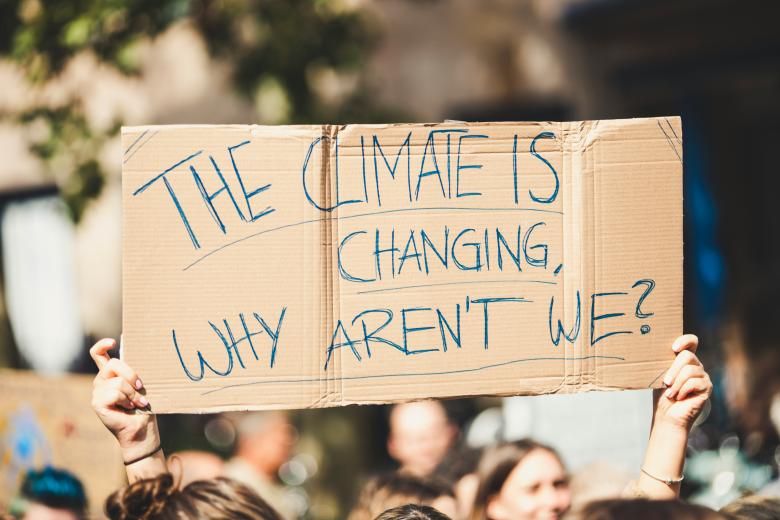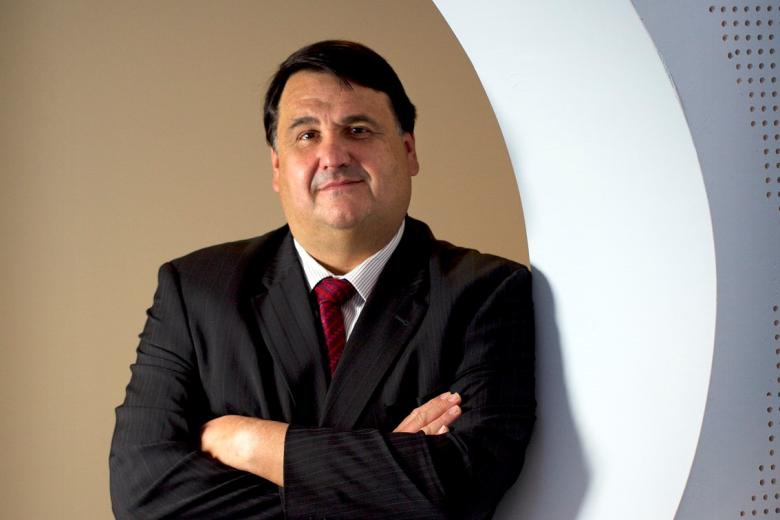The wall in the mind
Do you remember where you were on 9 November 1989? Tomorrow is the 25th anniversary of the fall of the Berlin Wall—a crucial moment in the German and European history of the twentieth century.
At the time, I was in Boston, in the US, where I was working at Harvard University. I saw the pictures on television of the press conference where SED party leader Günter Schabowski told the world press that GDR citizens could cross the border, effective immediately. For 28 years, that border had been an impregnable, perilous fortress. The images of the masses on top of that wall are legendary. But strangely enough, they didn’t affect me so much at that moment. I hadn’t experienced everything leading up to this historic day up close, and such a great distance apparently limits your emotions. A few months later I got a piece of the wall from an American colleague who was at a conference during the fall of the Berlin Wall. He had bought it especially for me and seemed very disappointed that I didn’t react as emotionally as he did.
It wasn’t until I moved to Berlin in 1993, and later worked as Dean of the Charité, the former university medical centre of the East German capital, that I experienced what ‘Die Wende’ (‘The Change’) had meant. The cultural difference between East and West was still alive and kicking. There was still ‘die Mauer in den Köpfen’ (‘the wall in the mind’), which was not as easy to tear down as the ‘real’ wall. That was understandable because the reunified Germany was often a ‘Zweiklassengesellschaft’ (‘two-class society’). For instance, an East German doctor or researcher was paid only eighty percent of what a West German colleague was paid for the same work in the same department. It was an unimaginable and unsustainable situation, which took more than ten years to change. It took years before the two cultures merged, though I don’t even dare claim that native ‘Ossies’ will now feel completely at one with native ‘Wessies’. The process is still ongoing, 25 years after the wall fell.
However, ‘Die Wende’ certainly has had positive effects on German people; there is greater understanding of and sentiment for their own country. That was well illustrated at the 2006 World Cup in Germany. For the first time in the modern history of the country, there was again a sense of national pride. Driving around with German flags on your car was suddenly not misplaced or shameless. In my youth, being proud of your country was really taboo. Our history was way too negatively loaded—we were a country with the wounds of several dictatorships.
Looking back, one in Germany now sometimes wonders: Was the GDR a dictatorship? For me, this question falls in the category of: Can birds fly? To those who still have doubts, I recommend visiting the former Stasi prison in East Berlin, Hohenschönhausen. Then you feel the oppression, and the history captures you by the throat. Yet I see a positive aspect to this discussion.
It illustrates that ‘we’ in Germany can also now question ‘truths’ without being punished. It’s great! I admire that in the new breed of German politicians in the tradition of Willy Brandt. They dare to ask questions and to express their doubts in determining their course and that of Germany. They show their sense of responsibility for the past by, for example, being cautious with German participation in military actions.
If history has taught us anything, it’s that ideological systems with beliefs set in stone (like walls in the mind) don’t work. Germany has broken through these walls. East and West have found each other in the middle, where seeking compromise turns out to not be so crazy. With its history in mind, Germany looks ahead from the year 2014 and strives to deal repsectfully with itself and its neighbours. With that notion in mind, I remember tomorrow, 25 years after the fall of the Berlin wall.
-
Academic Etiquette and Legal Conferences
Everyone learns by attending academic events where best practices prevail. There is value in observing the work of experts and in being exposed to different ideas that can serve as models. After all, participants–both active and passive–can benefit from following an academic etiquette that helps...

-
White Walkers, Red Lines: The IHL Case Against the Night King
Fictional battles have long served as a mirror for real-world anxieties about war, technology, and the limits of law. Season 8, Episode 3 of Game of Thrones, “The Long Night,” provides an opportunity to test the boundaries of international humanitarian law (IHL) by confronting its most fundamental...

-
The Obligations of States in Respect of Climate Change – A Landmark Opinion of Urgency and Hope
On 23 July 2025, the International Court of Justice (ICJ) handed down its much anticipated Advisory Opinion on the Obligations of States in respect of Climate Change. This case represents the highest example of climate litigation to date, with the Court joining numerous other international courts...

